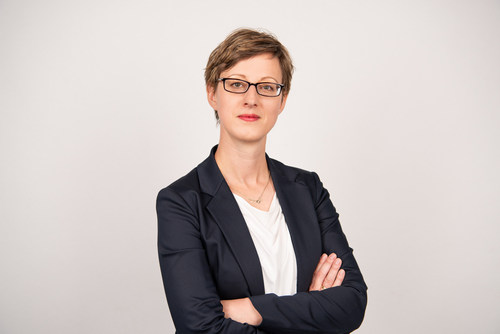Univ.-Prof. Dr. Reinhild Kreis
57076 Siegen

About me
I joined the History Department of the University of Siegen in March 2021 as a Professor of Contemporary History (Geschichte der Gegenwart). From 2014 to 2021 I taught as an Assistant Professor at the University of Mannheim (Akademische Rätin), and from 2009 to 2014 at the University of Augsburg. From 1998 to 2004 I studied History and Literature in Munich and at the University College of Ireland in Galway.
My research combines social, cultural, economic and political history approaches with a focus on 20th century Germany and the history of transatlantic relations. I am particularly interested in social orders, the history of emotions and the history of everyday mass phenomena. In my current project, I am writing about the history of competivization and in particular youth competitions during the 20th century in Germany (Nazi Germany, GDR, Federal Republic). I have worked extensively on the history of consumption with a special focus on DIY culture and household production in an age of mass consumption from the late 19th century onwards. In 2020, my second book Selbermachen. Eine andere Geschichte des Konsumzeitalters (Do It Yourself. A Different History of the Consumer Age) was published by Campus Verlag. I received my PhD in 2009 from the Ludwig Maximilians University of Munich with a study of the cultural policy of the United States in West Germany from the 1960s to the 1980s which was published as Orte für Amerika. Deutsch-Amerikanische Institute und Amerikahäuser seit den 1960er Jahren by Steiner Verlag in 2012.
My work was awarded with the Rita Süßmuth Prize for outstanding research with regard to gender questions in 2021. My dissertation has received the ifa Research Award on Foreign Cultural Policy and the Edmund Spevack Award for Transatlantic Studies in 2013. In 2013/14 I received a 10-months Fellowship in the History of Consumption from the German Historical Institute in Washington, DC. and in 2015/16 I spent a year at the Institute for Social and Economic History at the University of Vienna as a Lise Meitner Fellow.
Publications
Current projects
Youth in Competition. Mobilization, Competitive Spirit and the Shaping of the Future during the 20th Century
The project explores competitions for children and youth, which became a mass phenomenon during the 20th century. From playing music to scientific and technical projects to foreign language skills, a broad and ever-growing set of activities was transformed into competitions which aimed at the mass of young people and invited them to participate. Behind the competitions stood – in various constellations – companies, political parties, government ministries and associations that worked closely with schools and other training facilities. This format was equally prominent in democracies and dictatorships, market economies and planned economies alike. The project interprets youth competitions as a part of a larger history of national and individual comparison, social self-observation and self-quantification in connection with discourses and practices relating to achievement, meritocracy and inequality.
Ecology and Economy. Environmental Management Systems and the Transformation of German Universities since the 1990s
After the United Nations Conference on Environment and Development in 1992, German universities and research institutes began to slowly adapt Environmental Management Systems. Eco-Management Systems and certification standards had been developed for business enterprises, but not the academic world started to transform these instruments according to their needs. The projects explores the definition of environmental and climate protection goals served as a catalyst for far-reaching changes in university management (New Public Management). The focus is on a twofold transformation: the long road to the systematic integration of environmental and climate protection goals in universities and research facilities and its intertwinement with transformation of objectives and processes in university management.

